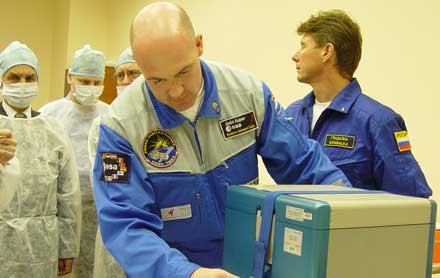
April 22, 2014, by Lindsay Brooke
Life in space – new opportunities for research
The European Space Agency (ESA) is selecting new experiments to float in microgravity, 400 km above the planet on the International Space Station (ISS). To encourage scientists to come forward Dr Nathaniel Szewczyk an expert in molecular medicine from the School of Medicine at The University of Nottingham recorded an interview specially for the ESA to talk about the success of his research with worms onboard the ISS.
Earth’s orbital outpost is a well-equipped laboratory for scientists in many disciplines. From 2000°C metal furnaces to –80°C freezers and from greenhouses to centrifuges, the Station can cater for your scientific needs.
Experiment success stories include a better understanding of our immune system, developing vaccines, finding genes responsible for ageing, developing lighter and stronger metal alloys and discovering animals that survive in open space.
ESA’s focus for this round of experiments is on life sciences, so research on humans, plants, cells and astrobiology have priority. Proposals have to be in by 23 May detailing why your experiment should be performed on the Station.
Dr Szewczyk is trying to find out which cellular signals are sensitive to gravity to combat unwanted changes in our cardiovascular system, bones, muscles and nervous system. Researching these changes offers clues on how to reverse ageing for people on Earth.
Count down to space mission for worms
Microscopic worms could help open up travel into deep space
Nottingham experts take part in world’s first commercial space flight
Spaceflight may extend the lifespan of microscopic worm.
No comments yet, fill out a comment to be the first

Leave a Reply